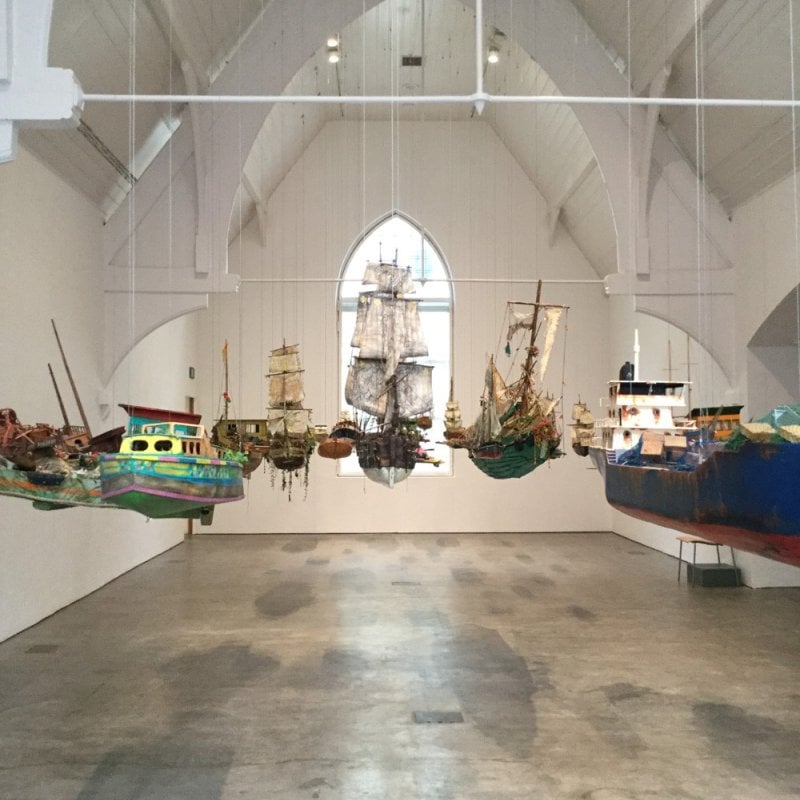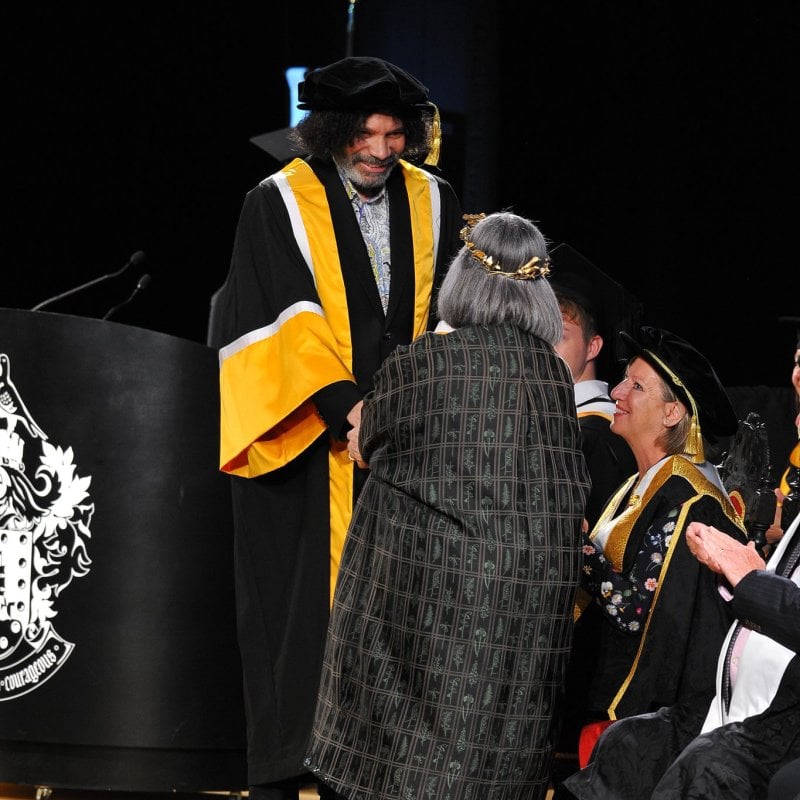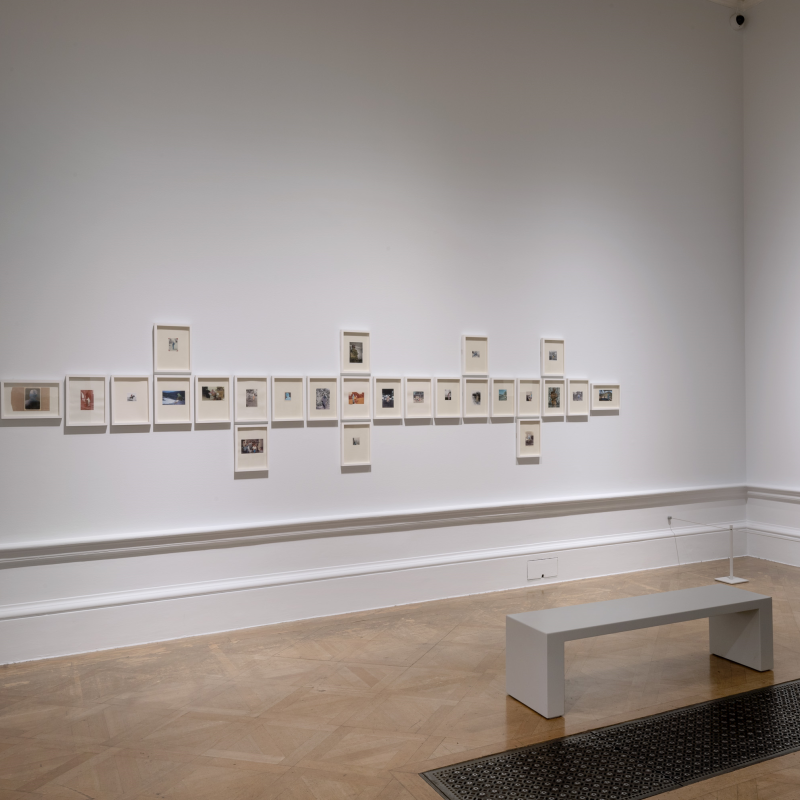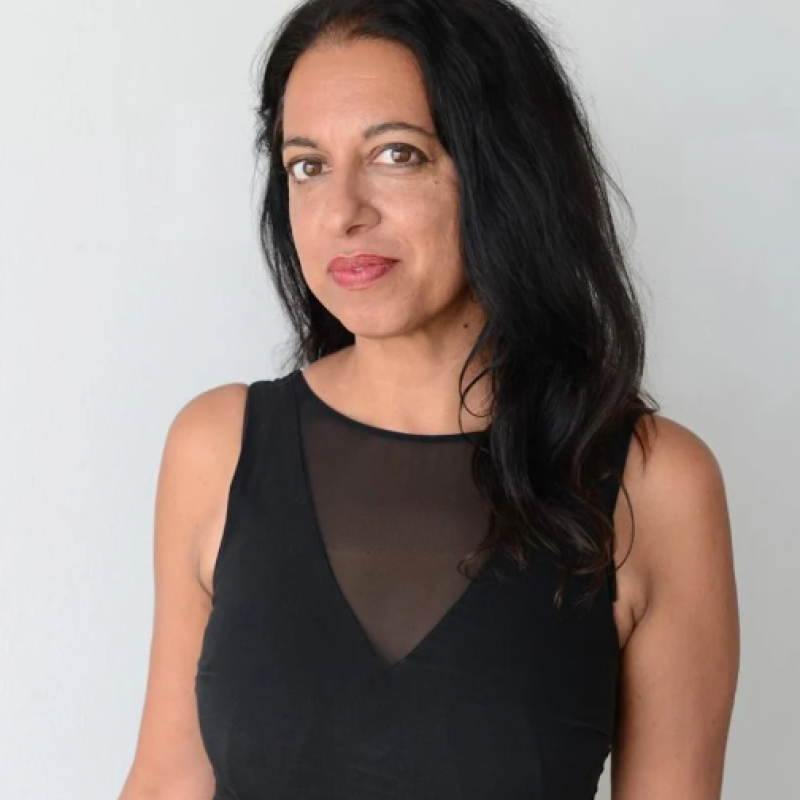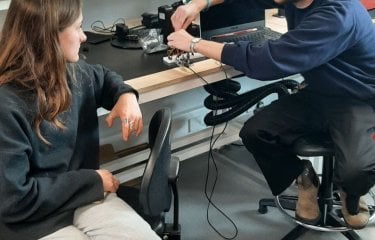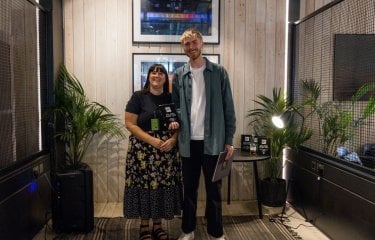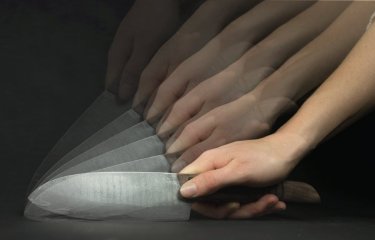Falmouth artists feature in Royal Academy of Arts exhibition on art, colonialism and change
24 April 2024
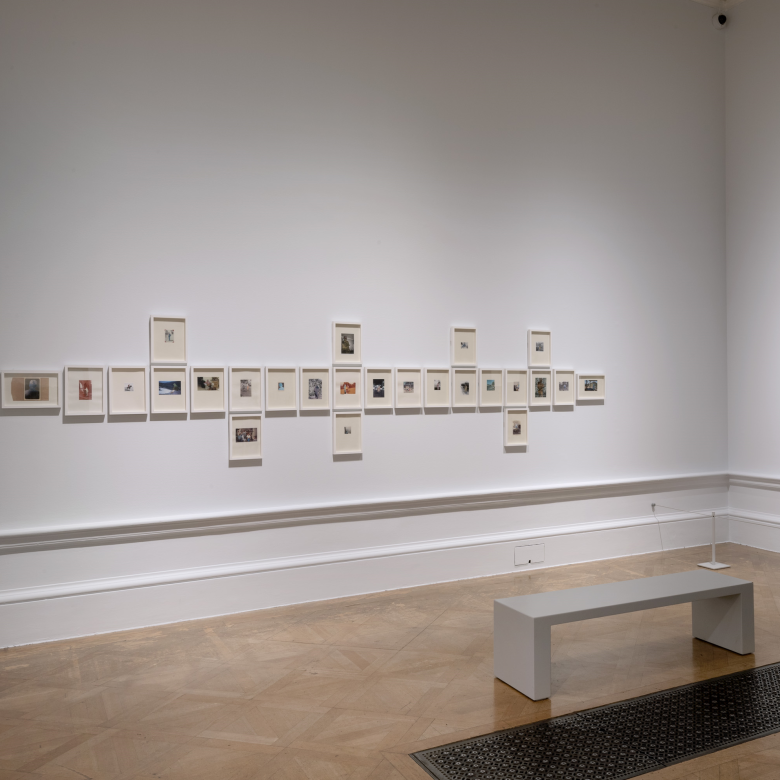
Mohini Chandra, 'Imaginary Edens/Photos of my Father' in 'Entangled Pasts, 1768-now', Royal Academy, London, 2024
Works by esteemed Falmouth alumnus and Fellow Hew Locke OBE and Fine Art MA (Online) Module Leader Dr Mohini Chandra are currently on display at the Royal Academy of Arts (RA) in London.
The exhibition, entitled Entangled Pasts, 1768-now, presents over 100 contemporary and historical works as part of a conversational exhibition about art and its role in shaping narratives of empire, enslavement, resistance, abolition and colonialism – and crucially, how art may help to support future change.
The RA was founded over 250 years ago by a group of artists and architects and remains one of London’s largest art institutions. Informed by the RA’s ongoing research into its colonial past, Entangled Pasts, 1768-now has engaged with around 50 contemporary artists to explore themes of migration, exchange, artistic traditions, identity and belonging.
Since completing his BA in Fine Art at Falmouth College of Art (now Falmouth University) in 1988, Guyanese-British artist Hew Locke has found international acclaim. His work is represented in many collections including Tate, The National Trust, The Metropolitan Museum of Art, New York, The Victoria & Albert Museum, The Imperial War Museum, The British Museum and The Henry Moore Institute, Leeds.
In June 2023 he was awarded an OBE in the King’s Birthday Honours for Services to Art. He was also awarded a Fellowship by Falmouth University in 2023 – the highest university accolade conferred onto individuals who have made an outstanding contribution to the creative sector.
On his piece – Armada (2017-2019) – featured in Entangled Pasts, 1768-now, Hew told us: “This piece is like a visual poem and includes customised models of contemporary and historically resonant vessels. A ship is a symbolic object; a vessel of the soul, a means of escape, and can represent both safety and danger. No crew are visible, as the boats themselves stand for crew and passengers. It references migration then and now, and empire and slavery.
“The work is partly inspired by votive boats you can sometimes see hanging in the naves of churches and cathedrals in Europe, and I’m using these votive boats to tie together the wider history of Britain, and the idea of Britain as an island nation.
“In the RA show, the boats tie together with the images and histories on the walls around them. I try to present something aesthetically interesting and attractive to draw an audience into more complex conversations, and that's what I feel this show is all about.”
Dr Mohini Chandra’s work deals with articulations of identity and globalised spaces, and the role of photography in relation to memory and migration. She has won numerous awards, has been extensively exhibited across the world in both solo and group exhibitions, and has pieces in collections including Autograph, London, Southeast Museum of Photography, Florida, Arts Council of England and Brisbane City Council.
As Module Leader on Falmouth’s online master’s degree in Fine Art, she teaches and supports a global network of emerging artists to locate how research operates within their respective practices.
Her photographic series Imaginary Edens/Photos of my Father (2005-15) features in the ‘Beauty & Difference’ section of Entangled Pasts, 1768-now, and is based on every photograph of her father that she could find in her globally scattered family albums – in Fiji, Australia, New Zealand, Canada, the USA, the UK and elsewhere.
On the series, Mohini explained: “Many of the images allude to my own childhood experience in the 1970’s, migrating from the UK and living in Australia. My father’s ancestors were taken from India to Fiji as indentured labourers under British colonial rule. Subsequent generations came to own and run highly popular photographic studios in Fiji. In Imaginary Edens/Photos of my Father, glimpses of the backdrops from these studios create an imaginary dreamscape, whilst corporeal absence alludes to the diasporic experience of in- between-ness.”
Entangled Pasts, 1768-now is at the Royal Academy of Arts, London until 28 April.
